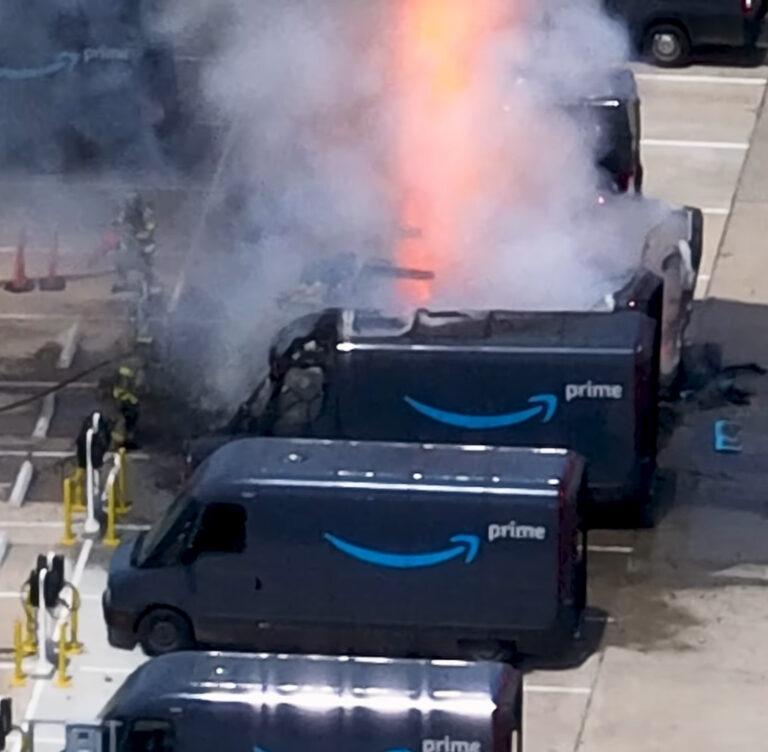Multiple Rivian Electric Vans Destroyed in Amazon Fulfillment Center Fire
An Amazon fulfillment center in Houston, Texas witnessed a significant incident on Monday, as multiple Rivian delivery vans caught fire in the facility’s parking lot. The blaze involved the electric vehicles, and dramatic footage captured from the air by Third Coast Drone showed the severity of the situation.
The aerial footage revealed thick black smoke billowing from the parking lot. A large number of custom Rivian vans, part of Amazon’s last-mile delivery fleet, were parked in the area. The vehicles burned intensely, consistent with the nature of electric vehicle fires. Flames, sparks, and hot gases shot high into the air, even as fire crews worked to extinguish the blaze.

At least three vans sustained considerable damage in the fire. Two were completely destroyed, reduced to their metal skeletons after the flames were brought under control. As has been observed in previous EV fires, emergency crews faced challenges in extinguishing the blaze. This is characteristic of battery fires in electric vehicles. The batteries are prone to thermal runaway, a process where the chemicals inside the battery degrade in an exothermic reaction, releasing more heat and sustaining the fire. This makes it extremely difficult to cool the battery sufficiently to stop the process, often requiring large volumes of water.

The cause of the fire remains unclear. One potential scenario is that a single vehicle initially caught fire, with the flames subsequently spreading to nearby vans. A commenter on the YouTube video claimed to have been in the vicinity, stating, “I was nearby and can confirm that it was the chargers that caught fire and spread to the vans.”

Rivian has since released a statement on the incident. The company confirmed that no injuries were reported and that the cause of the “thermal event” is still under investigation. Their statement reads, “We are aware of the incident and are investigating the situation. There were no injuries from this incident. As we are gathering information, it is too soon to say what might have caused this thermal event. There were a few vehicles impacted by the incident, but the thermal event propagated from the source to surrounding vehicles. This vehicle was plugged into the charger, but it was not charging when the incident occurred. The HV battery was not the initiator of the incident.”

Based on Rivian’s statement, it appears the fire started in or near one vehicle and then spread to other vans. Further details will likely be released as the investigation continues.



